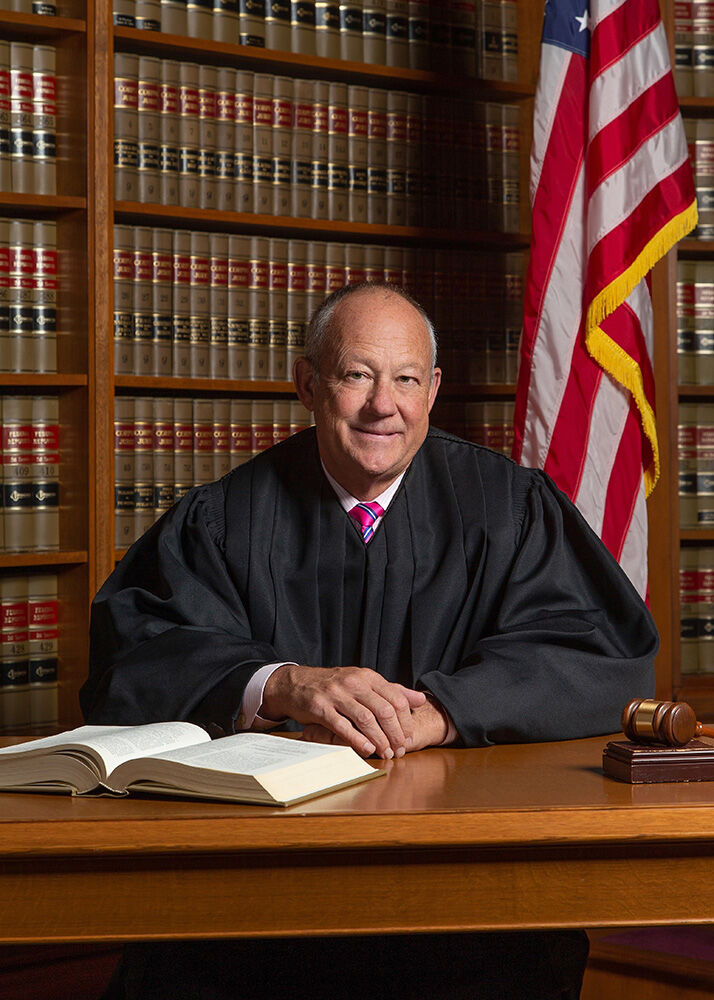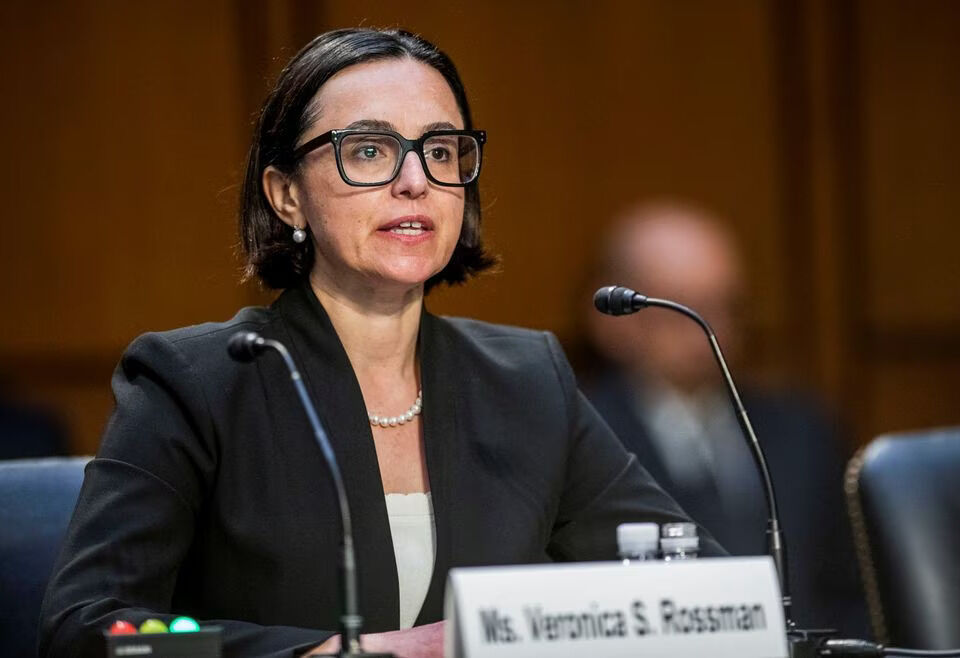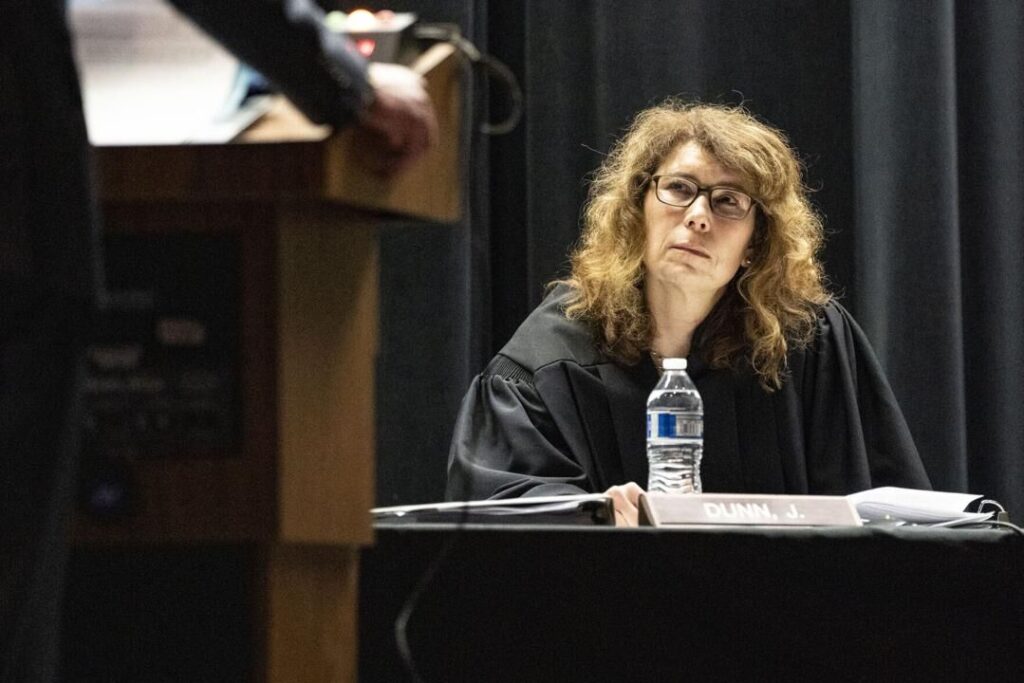10th Circuit judges weigh in on low number of trials, AI during law school appearance

Three judges on the Denver-based federal appeals court fielded questions from an audience of students on Tuesday about the low number of cases that ever make it to trial and the potential influence of artificial intelligence on the judiciary.
Senior Judge David M. Ebel of the U.S. Court of Appeals for the 10th Circuit said he was “troubled” by the many federal cases resolved on motions to dismiss or motions for summary judgment, which permit judges alone to end a dispute without a jury trial.
“It means, to me, people are being partners in significant firms in the litigation department and are never having full trials,” he said. “That’s not what motivates me. What motivates me is whether people who really are entitled to trials aren’t getting them. It’s a cloud on the horizon for me.”
Ebel and Judges Timothy M. Tymkovich and Veronica S. Rossman traveled to the University of Denver’s Sturm College of Law to hear oral arguments in five real cases, and then held a question-and-answer session with attendees. The 10th Circuit has jurisdiction over federal appeals from Colorado and five neighboring states, and all three judges hold Colorado-based seats.
Ebel, a Ronald Reagan appointee, was most vocal about the relative scarcity of cases that ultimately end with a jury trial. According to statistics from Colorado’s federal trial court, 3,374 civil cases and 376 felony criminal cases were filed in 2022. In contrast, the court only held 56 trials.
Since he took a form of semi-retirement known as senior status – and was succeeded on the 10th Circuit by now-U.S. Supreme Court Justice Neil M. Gorsuch – Ebel said he has stepped in occasionally to handle cases at the district court level.
“I think there’s a place for (pretrial) disposition and I’ve certainly granted that as a district judge. But I will add my unease with how many of them are being disposed of preliminarily now,” he added.
Tymkovich, a George W. Bush appointee, said the fact that three-judge appellate panels review a trial judge’s decision to end a case is a layer of protection to ensure plaintiffs are not being deprived of their right to a trial.
“We affirm far more than we reverse. So, that probably indicates that we’re somewhere in the right spot, at least in this circuit,” he said.

Rossman, who joined the court during the Biden administration, declined to comment on the frequency of pretrial dismissals, citing her “small sample size” as an appellate judge.
The panel also responded to a question about emerging AI and how technological developments may affect the fundamental components of the legal profession. Recently, state and federal judges in Colorado warned attorneys to educate themselves about the responsible use of generative AI, as blanket no-AI policies may create their own hazards.
“The federal judiciary has probably been the least disrupted so far by the rise in social media and artificial intelligence and those sorts of things. Maybe that just means we haven’t felt it yet and we will,” said Tymkovich.
He added that the court has not evaluated how new technologies will affect decision making, but AI “is a tool to generate persuasive writing. To the extent it can do it better or more effectively than a lawyer sitting at the bench remains to be seen.”
“AI doesn’t have clients. Only lawyers have clients,” interjected Rossman. She acknowledged AI may help lawyers conduct research more efficiently, but it will not eliminate the need for attorneys to know how to communicate effectively on behalf of their clients.

Finally, the judges spoke of the importance of oral arguments, with Ebel explaining they allow him to glean information from the lawyers and his colleagues.
“Decision making for me is not instantaneous,” he said. “I think it’s helpful for my way of thinking and to my colleagues to have something planted in my mind at oral argument that I can give a little bit of gestation to before we vote.”
Rossman, who appeared before the 10th Circuit as a public defender prior to her appointment, said oral arguments can help her better describe a party’s argument correctly when writing the decision.
“This was something important to me when I was an advocate. When I got an opinion, I saw myself in the opinion. It was something I helped make,” she said. “Judges want you to succeed. No one’s sitting up here thinking, ‘OK, you’re gonna blow this.'”














